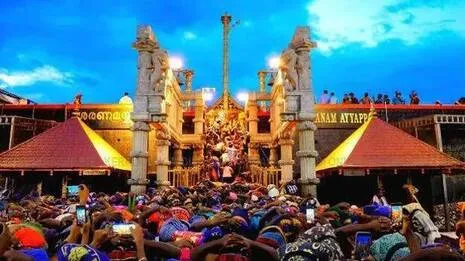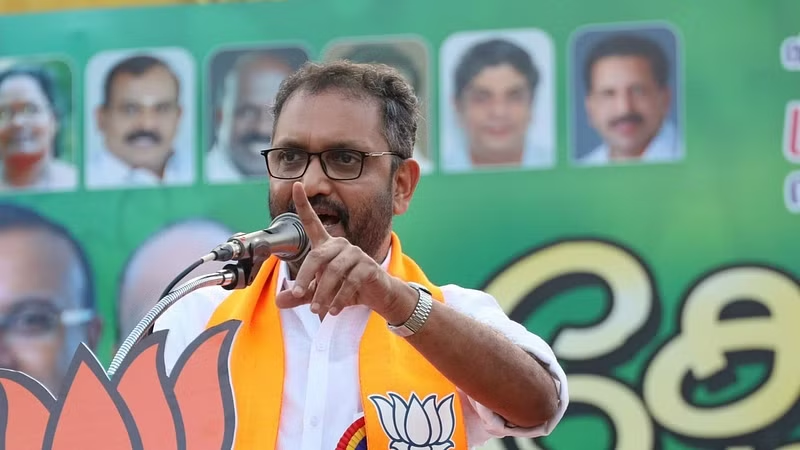
Growing Opposition to Government Decision
Protests are intensifying in Kerala against the state government’s recent decision to permit only online bookings for the upcoming Sabarimala pilgrimage season. The policy has drawn criticism from various political parties, including the CPI, BJP, and Congress, all urging the government to reconsider and allow spot bookings as well.
Concerns from Political Leaders
The Communist Party of India (Marxist) state secretary, MV Govindan, has joined the chorus of dissent, emphasizing the need for both online and spot bookings to ensure that no pilgrim is denied darshan. The current policy limits daily pilgrims to 80,000, raising concerns about accessibility and fairness during the highly anticipated Mandalam-Makaravilakku season.

Government’s Justification
Kerala Devaswom Minister VN Vasavan defended the decision, citing logistical challenges posed by large crowds. He argued that regulating the number of daily pilgrims is essential to prevent overcrowding, a concern that became apparent during last year’s pilgrimage when over one lakh devotees overwhelmed the shrine.
Political Tensions and Historical Context
The decision has not only sparked protests but also revealed internal disagreements within the Left Democratic Front (LDF). The CPI has publicly supported the call for reintroducing spot bookings, indicating a fracture within the coalition regarding how to manage the pilgrimage effectively.
Historically, Kerala’s communist governments have faced criticism for their handling of religious matters, often perceived as at odds with the beliefs of devotees. This tension is underscored by past conflicts, such as the Supreme Court’s 2018 ruling that allowed women of all ages to enter the Sabarimala temple, which further fueled sentiments against the ruling party.
Economic and Emotional Significance of Sabarimala
Sabarimala holds a unique position in Kerala’s cultural and spiritual landscape, attracting millions of pilgrims each year. Its seasonal pilgrimage is crucial for the economy of the Pathanamthitta district, contributing nearly 90% of the annual revenue for the Travancore Devaswom Board, which manages the shrine. The ongoing unrest highlights the delicate balance between governance and religious sentiment, making Sabarimala a politically charged issue.
As the pilgrimage season approaches, the Kerala government finds itself navigating a complex web of public sentiment, logistical challenges, and political maneuvering, with the stakes higher than ever.


